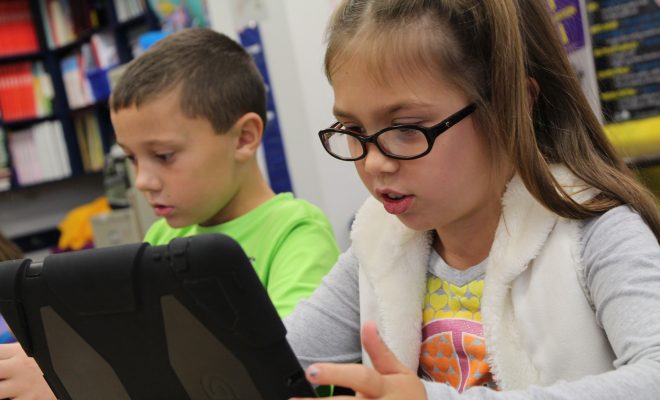Why Cash-Strapped School Districts Should Turn to OER

Open Educational Resources are educational materials that are available online without any copyright restriction. These are a powerful learning tool for every student, but perhaps most especially for those students in cash-strapped school districts. Here’s why:
First, the expense of traditional printed textbooks means that underfunded school districts are not able to replace them frequently. It is difficult for teachers to teach their students when the last two or three presidential administrations are not even included in the student’s textbook. The rapid advance of technology makes this problem even worse, and students have a hard time taking a text seriously if it shows people talking on phones with cords or using computers with monitors the size of minifridges. The great benefit of OER is that it makes it possible for content to be continuously updated and for schools to use the updated versions instantly and at no cost.
Second, there is a level of personalization possible with OER that is simply not imaginable with traditional resources. One of the main purveyors of OER is CK12. Their modular materials make it possible for students to be given precisely the materials that they need. Teachers can select reading materials that cover the same topic at a higher or lower complexity, depending on the needs of the individual student. They can select reteaching and remediation materials based precisely on the learning deficits of each student. They can also permit students to select topics of their choice to study from a wide array of options. And, the variety of materials—from written narratives to videos to interactives to practice questions—ensure that students are able to select materials that are the best match for their particular learning needs. None of this is possible with a traditional textbook.
Third, OER make it possible for students to be exposed to a wider variety of viewpoints. A traditional textbook speaks with one authoritative, correlated voice. But OER allows teachers to, for example, find primary sources and scholars who present multiple sides of an issue or controversy and allow students to analyze and assess these themselves. This kind of critical thinking is essential for today’s students, and OER makes it possible.
Recent research on OER shows evidence of improved learning outcomes: students have higher retention rates and higher grades when provided with OER materials than students who did not have access to OER. OER can supplement, enhance, or even replace traditional instructional materials and will benefit students in a variety of ways.






